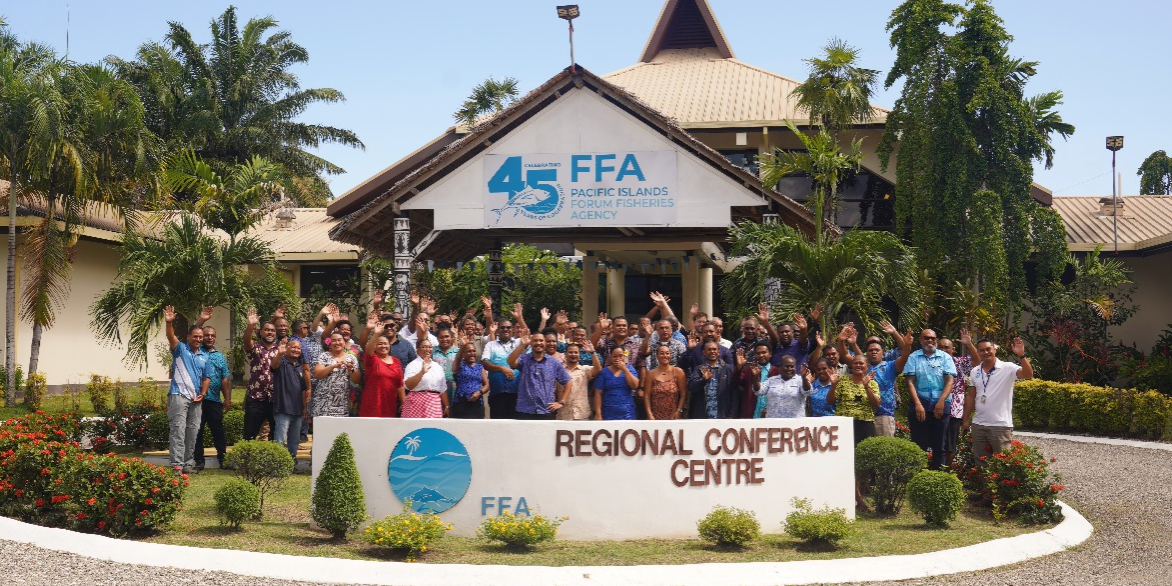HONIARA,– The Pacific Islands Forum Fisheries Agency (FFA) has concluded its 21st Management Options Consultation (MOC21) and the Special 140th Forum Fisheries Committee (FFC) Officials Meeting in Honiara, Solomon Islands – confirming a unified regional position ahead of the 22nd Regular Session of the Western and Central Pacific Fisheries Commission (WCPFC) in December.
The two weeks of discussions ended on Friday 31 October 2025, with FFA Members endorsing a coordinated package of draft proposals to advance at the upcoming WCPFC22.
South Pacific Albacore (SPA)
The management of South Pacific Albacore (SPA) remained the central focus of MOC21.
The FFC endorsed the submission for two complementary draft measures – the South Pacific Albacore Management Procedure (SPA MP) and its Implementing Conservation and Management Measures (CMM). These measures represent two years of collaborative work by FFA Members to develop a science-based approach that determines how much albacore can be caught and how catch limits are adjusted over time.
The proposed measures apply to all longline and troll fishing in waters south of 10° South latitude, and aim to ensure equitable sharing of fishing opportunities between national waters and the high seas. They build on the historic SPA allocation agreement endorsed by Fisheries Ministers in July, which introduced a fair, zone-based approach after more than two decades of negotiations.
FFA Members are also calling to adopt a high seas and EEZ’s split for the South Pacific albacore total allowable limit at WCPFC22 in December.
Article 30 – Small Island Developing States (SIDS)
Members reaffirmed the importance of Article 30 of the WCPF Convention, calling for an independent review of its implementation.
The review will assess how effectively the Commission recognises and supports SIDS’ special requirements, and whether new management measures place disproportionate burdens on developing states.
Climate Change
Acknowledging the growing impact of climate change on tuna distribution, reaffirmed the need for the Commission to account for climate-driven shifts in abundance and access when setting future catch limits.
FFA Members will call for equitable allocation that recognises the stewardship role Pacific countries play in sustainably managing tuna stocks.
Transshipment
Recognising limited progress on high-seas transshipment reforms under CMM 2009-06, FFA Members agreed that the most practical next step is to strengthen and enforce existing provisions.This includes clearer eligibility criteria restricting high seas transshipment to vessels built before 2010, improved transparency through published vessel lists, and stronger monitoring of transshipment activities.
Seabird Bycatch Mitigation
FFA Members will also put forward a revised proposal to extend the area where longline vessels must use at least two seabird mitigation measures, expanding the boundary to 25° South to help protect threatened species such as the Antipodean albatross.
In his opening statement at the FFC140, FFA Director-General Noan David Pakop described 2025 as “the year of the albacore”, acknowledging the historic progress made through regional solidarity.
“Since our last meeting in Niue, we have achieved a milestone nearly three decades in the making — the agreement of Members on the Management Procedure and their commitment to finalise the Implementation Measure for South Pacific Albacore. This is truly a historic outcome and a profound demonstration of Pacific solidarity, perseverance, and leadership,” said Mr Pakop.
He commended Members’ tireless work and the Secretariat’s support throughout the consultations.
“It has taken unity, compromise, and an unwavering commitment to the future of this valuable fishery and the communities who depend on it. This collective resolve ensures our region remains at the forefront of sustainable tuna management globally — heading to WCPFC as a united bloc.”
The unified positions endorsed at FFC140 will guide Pacific engagement at WCPFC22, to be held in Manila, Philippines, in December 2025, where the region will advance proposals on South Pacific Albacore, SIDS provisions, transhipment, and seabird conservation.
– FFA









